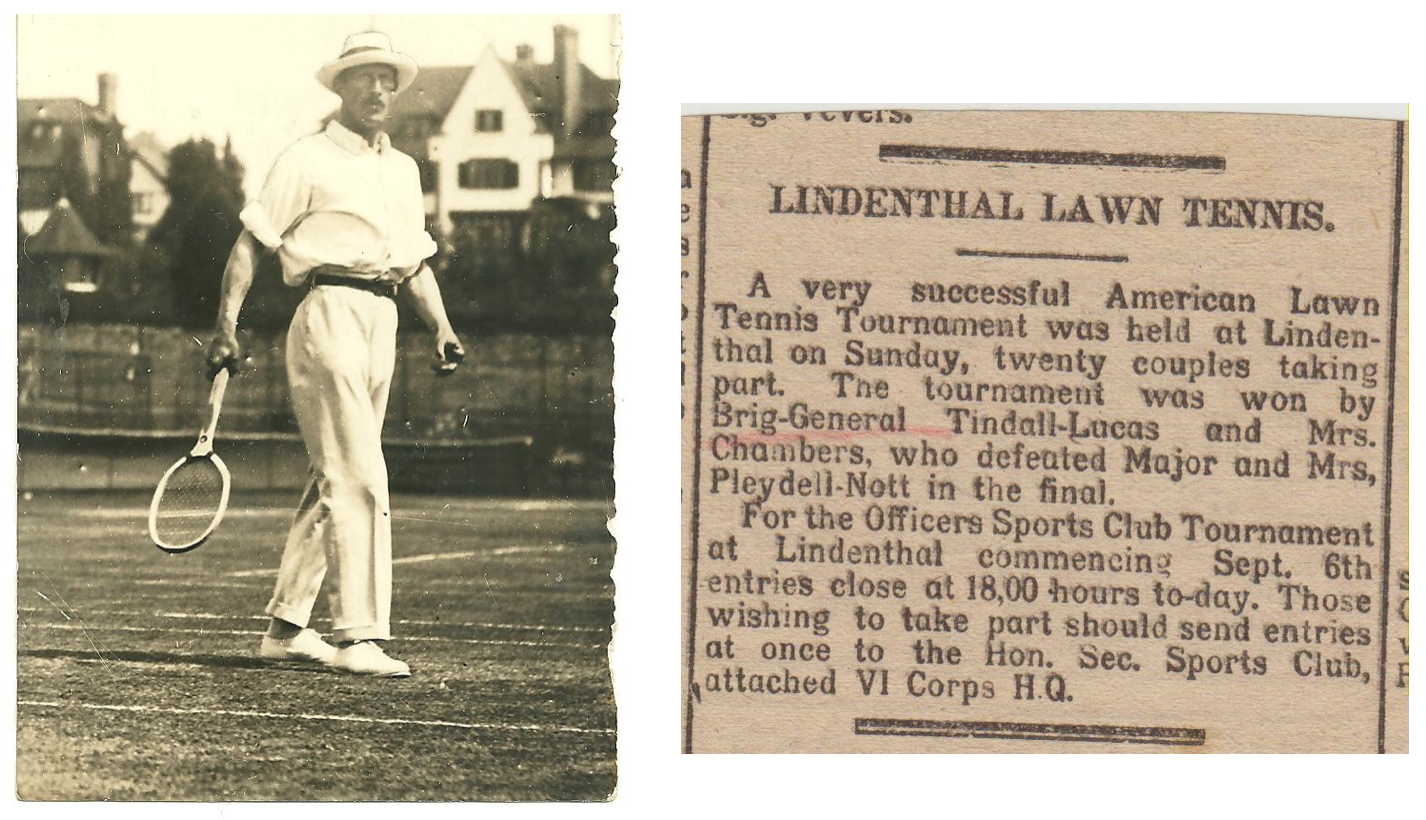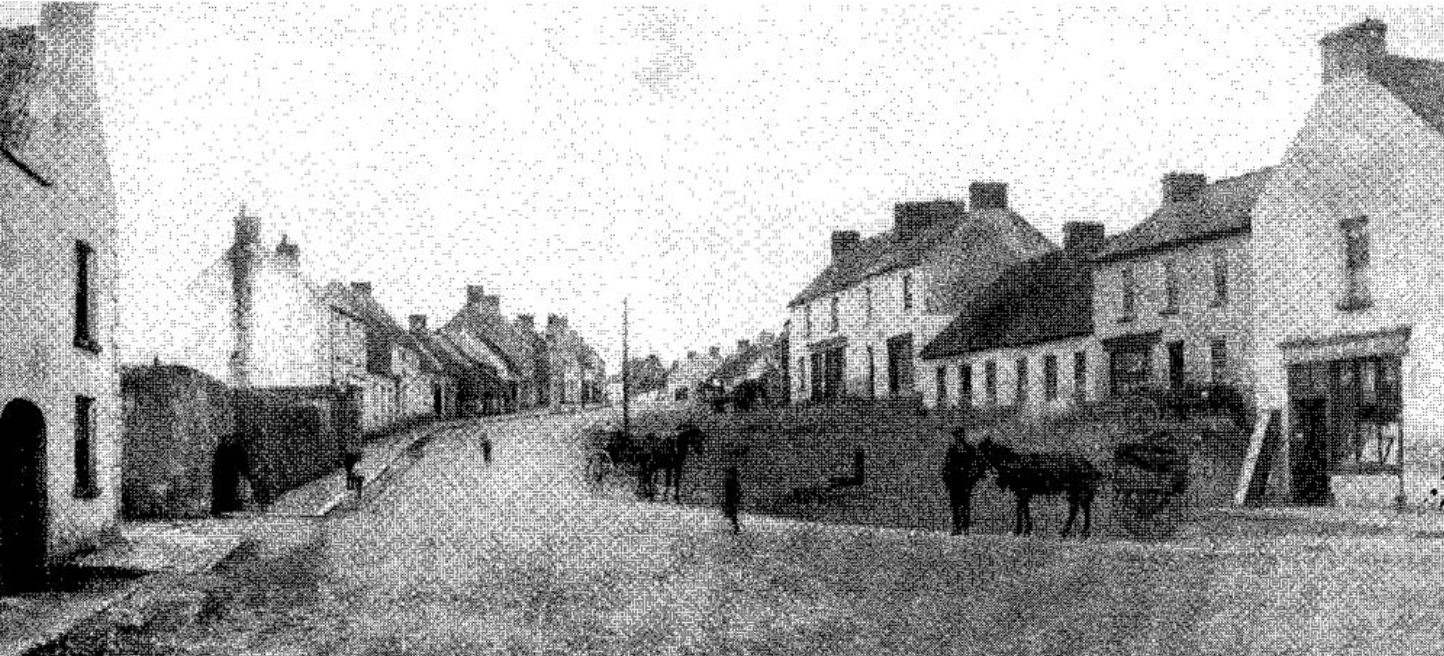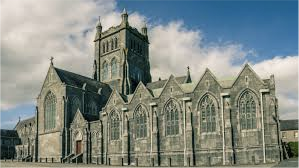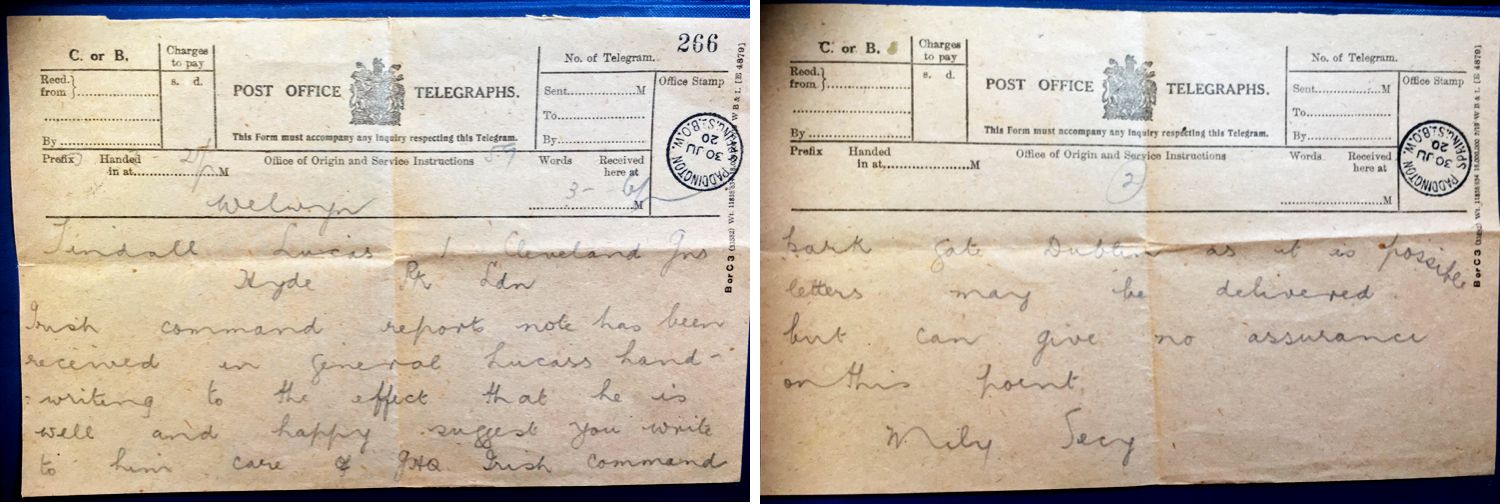1st July - No letter
Secret diary: Thurs. 9000 soldiers. Clothes.
Official diary (1st July): Early in the morning I moved to a small private house about four miles from Fr McCarthy’s. This house belongs to a man whom I gathered had drank about £75,000 in a few years. I remained here all day
Location: Dores' Balliston House near Ardagh, Shanagolden
Michael J. Dores was a life-long supporter of Irish Independence. He became a Justice of the Sinn Fein Court in West Limmerick. He’d attempted to get to Dublin for the 1916 Easter Rising but troubles on the Railway thwarted his plans. His home at Balliston near Shanagolden was the main Headquarters for the West Limerick Brigade and was often used as a refuge for IRA members who were fleeing from the army after the 1916 Easter Rising and other armed action. It was an obvious place to house the general. However this was just for a couple of days, not the ten days local legend asserts.
As to Dore’s drinking habits, there’s nothing to support the £75,000 alcohol bill that CHTL had been told about. According to his obituary: ‘Mr Dore belonged to one of the oldest and most esteemed families in West Limerick.’ His son, Mr. Michael J.K. Dore, became a solicitor. Maybe Michael Dore senior did like his drink, but perhaps the £75,000 cost was a little exaggerated? Source
CHTL was constantly being moved around the countryside, as the Volunteers kept one step ahead of the British troops. They relied on an extensive network of supporters who helped convey orders and messages. Tim Donovan’s mother Kitty remembered “cycling from Clashganiff to Balliston House with a despatch telling the Volunteers that the lawnmower in Madigan’s home could be collected and to arrange a game of tennis on the grass court at Balliston House.” There were the Volunteers going to great trouble to entertain their ’guest’ by ordering in advance a game of tennis for him. p193 In the Shadow of Shanid: The Life of Captain Timothy B. Madigan (1897 - 1920), Tim Donovan, 2010
So CHTL was able to indulge in another of his favourite sports - tennis.
I thought the place where Lucas was then held prisoner had a fantastic air. Four rifles were piled in the centre of the drawing-room which had a Turkish carpet. We dined at eight. We used to play tennis, and I remember on one occasion I had to request Lucas to cease playing and withdraw to a clump of trees as we could be seen from passing military lorries and he might be recognised.
BUREAU OF MILITARY HISTORY, 1913-21 STATEMENT BY WITNESS DOCUMENT NO. W.S. 388 Mr. Joseph Good, ”Raisin”, Member of Irish Volunteers
According to the story that years later CHTL told his son Bob; it was during a game of tennis that he attempted another escape. Some of the young lads guarding him had never played tennis and CHTL being quite an expert player (having played for his county, regiment and in pre Wimbledon tournaments) proved to be a good coach. CHTL loved to have a good time and to make sure that his companions, whoever they were, had a good time too. His enthusiasm for the game would have been infectious and the lads would have responded to his kindly but strict instruction. They would have been eager to impress the general whom they reluctantly admired.

Setting his guards up playing a match, CHTL edged his way to the property's boundary as the novice players were captivated by this new game. The competition element was probably fierce amongst the boys who must have found being cooped up guarding CHTL frustrating and who would have welcomed some light relief and exercise.
Unfortunately, CHTL's endeavours to abscond were short lived as it was soon noticed that the general was straying a little too far. His tennis protégées were still too needy for instruction and would not have managed without his support for long. One can imagine a dispute about a line call being taken to the 'umpire' and the 'umpire' having to tactically move back to the court's edge to adjudicate!
None of the IRA Witness Statements record this incident, either because the Volunteers were unaware that it was an escape attempt or possibly that no one wished to be reprimanded for taking their eyes off the ball!
Around this time Tomas O Maoileoin had charge of CHTL:
While we were in West Limerick and soon after the burial of Liam Scully, we got a message from North Cork - Seán Moylan or Liam Lynch - to go down to take over General Lucas, who had been captured a short time previously, and there was great enemy activity around the North Cork area. We took him over somewhere around - I think it must have been Newmarket, Co. Cork, in that direction anyway. I can't remember exactly. I know that, approaching Abbeyfeale on our way back with him as a prisoner in the car, we ran out of petrol and that he had to help us to push the car to the tops of the hills when we could let it run down. In this way, we got as far as Abbeyfeale where we got petrol.
We took him to a place outside Abbeyfeale and kept him there for a night. Subsequently we took him on near Shanagolden. I am not sure whether there was any R.I.C. garrison in Abbeyfeale at this time, but I think that probably there was not. We got the petrol in a garage at the outskirts of the town. We spent a night near Abbeyfeale, or possibly it may have been only a day, and we moved on after nightfall. We took him to a place near Shanagolden*. Dore was the name of the man who owned the house We kept Lucas there for several days, perhaps for a week.’
BUREAU OF MILITARY HISTORY, 1913-21. STATEMENT BY WITNESS DOCUMENT NO W.S. 845 Witness Tomas 0 Maoileoin, Identity. Vice-Comd't. EastLimerick Brigade

CHTL was back on familiar ground - helping to push a car that refused to go on its own accord. He’d encountered many such vehicles during his time in France and entertained his family with stories of them. He had seen what had happened to Danford and was not going to risk any rash break for freedom that could have endangered more lives. If he'd made his presence known to any passing RIC or army patrols, the inevitable gun battle that would have ensued would have created a bloodbath. He didn't feel that he was in any particular danger and was quite happy to bide his time, in the meantime enjoying the thrill of the experience.
Whilst the Sinn Feiners and their prisoner were pushing cars up in County Limerick, the troops were combing the area around Fermoy, down in County Cork, with a fine tooth-comb, convinced that their missing general was still in the area. CHTL's son Bob met an Irish lady in the 1960's who had a vivid childhood memory of soldiers coming into her home and searching under her bed for his father!
The Daily Chronicle reported on the sacking of Fermoy:
FERMOY AGAIN SACKED
THOUSANDS OF POUNDS DAMAGE DONE BY IRATE TROOPS.
From the “Daily Chronicle” Special Correspondence
CORK, Monday
A serious sequel to the kidnapping of General Lucas at Killbarney fishing lodge, 5 miles from Fermoy, occurred last night.
Damage to the extent of many thousands of pounds was done in the town by troops who, it is alleged, definitely stated that they were acting in this manner as a retaliation for the kidnapping of the brigadier.
Men broke after the barracks at midnight, and ranged through the streets, smashing plate-glass windows in every direction and throwing the contents of the shops out into the roadway.
A jeweller’s shop which was attacked was stripped of thousands of pounds worth of jewellery which was flown about the streets. Two motorcycles from a cycle shop were flown into the river.
CHEERS HAIL WINDOW SMASHING.
The disturbances continued for two hours during which in a single street 35 shops were more or less destroyed, the splintering of the windows being hailed with violent cheering.
It is declared that shots were also fired.
A meeting of townspeople this afternoon made an appeal to General Strickland, commander of the Southern area, to prevent repetition of the outbreak.
In September last, it will be recalled, considerable damage was inflicted upon property in Fermoy following upon the shooting of private Jones, one of a party of soldiers who were held up on the way to church parade.
ANOTHER IRISH TOWN PARTLY WRECKED.
Lismore, in County Waterford, was also partially wrecked on Sunday night, and many shops and private houses were looted, as a reprisal for the kidnapping of General Lucas.
Bombs and grenades with thrown, and there was rifle firing. Several people were injured, but not seriously.
The Evening Standard in London reported on the military's fruitless search for the kidnapped general:
A MILITARY ZONE. AEROPLANES DRONE AND BAYONET GLITTER.
From Our Own Correspondent.
CORK, Tuesday.
Over 20,000 men of the military and police forces have been vainly searching for the secret prison of Brigadier-general Lucas, who was kidnapped on Saturday night. Miles upon miles of country have been scoured, house-to-house inquiries made, moors and thickets, deserted cottages and decaying mills -even the weird depths of the famous Mitchelstown caves- have been penetrated by the searchers, but to-day, again, the military authorities confess they are without a clue.
Rifles and Bayonets.
One arrives and leaves the district round Fermoy by a series of searches and interrogations, always under the menacing muzzles of levelled rifles, with an inner fringe of levelled bayonets. All motors and vehicles entering the area are held up. Occupants searched, and their names, business, and destination required.
The whole district -one of the best wooded in the South of Ireland- bristles with bayonets among the trees, while aeroplanes fly just above the tops, watching for any suspicious movement.The aeroplanes go round and round the area in what seems an eternal circle, for the authorities believe that the general has not been taken far outside the district.
The area around Fermoy was like an impenetrable fortress, no one could sneeze without the military asking why! The innocent people of Fermoy were once again caught in the middle of the conflict and suffered more harassment and fearful, sleepless nights.
SCARRED FERMOY
The "war zone'' impression given by these measures is strengthened as one passes through Fermoy, where all windows are boarded up and either woodwork or corrugated iron protectors have been placed along streets of windows. For four hours systematic smashing and looting went on. About 500 persons, including soldiers, took part, led by men in civilian clothes with blackened faces.There is still a reign of terror in the town. Last night town’s patrols consisting of volunteers, labourers, and shopkeepers kept control of the streets. There were grave fears of further rioting, and few people went to bed.
Bombs in Houses.
Lismore, whose people have the reputation of being the most loyal in the South, had a similar terrifying experience. Shops were smashed, shots were fired indiscriminately, and bombs were thrown into a number of houses. At Newcastle West a newspaper office was wrecked, and from other areas there are reports that show the soldiers have taken the matter of avenging the capture of General Lucas into their own hands.
One thing that the army did find, which wasn't that momentous considering that it was found where it was left, was CHTL's battered car:
The general’s motorcar has been found a short distance beyond where Colonel Danford was shot as he attended to escape. It was run into a ditch and abandoned.
The car was a large American one, and apparently the left-hand steering gear was an embarrassment to its drivers.
Evening Standard newspaper cutting found amongst CHTL's papers. No date but it appears to have been published on Wednesday 30th June 1920
So there was another reason why CHTL (and his drivers) were hoping that the car was a write off!
General Macready was led to believe that General Lucas’ prison was Mount Melleray Monastery, Cappoquin which was East of Fermoy. The direction that CHTL had been whisked away in was North West of Fermoy! The good monks must have been very perplexed as to why they would have been suspected of having a kidnapped general hidden within their Abbey’s walls.

The monastery had been founded in 1832, after the French government had expelled all foreign monks from the Cistercian monastery of Mellery in Brittany. In 1855 a visiting abbot remarked on the monks spending their time in "penance and contemplation", they were "found contented with the blessed lot of Mary, sitting at the Lord's feet in silence and detachment". However two years later Fr.Edmund McCarthy, a known Sinn Fein supporter and whose house was used to briefly accommodate CHTL, conducted retreats at Mount Mellary and maybe it was this connection that had the British suspicious of the monks - perhaps they weren't as 'detached' as they appeared. Nevertheless, one can't imagine had he been accommodated in a monastic cell, that CHTL would have enjoyed it - late night card games and bottles of whiskey might not have been on the menu!
p12 The Last Days of Dublin Castle : The Mark Sturgis Diaries Hopkinson, Michael ISBN 13: 9780716526261 Publisher: Irish Academic Press Ltd
Other newspaper accounts suggested that troops were looking on the East side of Fermoy scouring the coast looking for hidden places amongst caves whilst, unknown to the Press and the military, CHTL was being taken North West.
Meanwhile, there was an unhelpful letter from the missing general - unhelpful as it destroyed the government approved narrative that Sinn Feiners were all evil and cruel. It was highly irritating that the captured general was being well-treated and had no complaints!
THE CAPTURED GENERAL
An Alleged Letter.
(FROM OUR OWN CORRESPONDENT)
CORK, Wednesday.
An officer at Fermoy barracks received newspaper representatives today, and gave them the full text of the letter, which he said had been received from Brigadier General Lucas. The officer added that the letter was undoubtably in the General's handwriting, but it disclosed no hint of his whereabouts. The letter was as follows:
I am being well and considerately treated. Letters will be delivered to me after being censored provided they are going up in a parcel and delivered at ______ in Fermoy. If you try to follow up the letters they will not be delivered. You will not, I'm afraid, get anything out of it, and I will not get the letters. I have nothing to complain of as to the consideration shown me. They are doing all they possibly can to provide me with everything I want. I want some money– about £10. I am very glad to know that Col Danford is not dead, because I thought he was dead when he left me and I tried to escape and we attacked the guard. Colnel Danford was shot while struggling with a man. I have nothing else to add, and I understand my detention will last some few weeks.
Asked if the General’s wishes would be complied with, the officer answered in the affirmative, adding that he had himself written a letter to Brigadier General Lucas enclosing the money asked for. That letter with any letters in barracks for the Brigadier would be made up in a parcel which would be left at the shop indicated in the letter.
When questioned as to how the parcel would be addressed, the officer said it was also mentioned in the letter that Mr. So and So (giving a certain name which he himself believed to be fictitious) should be written across the parcel, and that a messenger would call at the shop and take it to General Lucas. The officer added that he believed the shopkeeper did not even know he was being used as an intermediary in the matter. No attempt would be made by the military to watch the shop as it would mean that General Lucas would not get his letters, especially those from his wife, and they did not want to do anything with that would cause him any discomfort.
Inquiries made at the Military Hospital this morning elicited the information that Colonel Danford was doing well.
Publication unknown - Newspaper cuttings found amongst CHTL’s papers
Churchill purple with rage
In contrast to the more serious reports about CHTL's misfortune circulating in the western press, 'The Outlook’ printed an article entitled: 'Lawlessness in Ireland’
This is only one kind of disturbance in Ireland. From many different points come reports of sporadic violence or destruction of property by Sinn Feiners or their sympathizers, culminating in the rather ludicrous but still serious incident of the capture and kidnapping by Sinn Feiners of a British Brigadier-General who was unwise enough to go fishing with a few friends. General Lucas, with two colonels, says the account, "had just retired for the night after a day's fishing when a band of armed and masked men appeared and seized them in the name of 'the Irish Republic' Colonel Danford was seriously wounded after he jumped from a car in an endeavour to escape." The incident might almost come from a Gilbert and Sullivan opera.
The Outlook July 7,1920, p.443 Source
Those in power at the top in Britain did not view the incident as a comic opera, but were taking it very seriously. Tempers were let loose behind parliamentary closed doors whilst humiliating exchanges occurred in the House. The Secretary of State for War, none other than Winston Churchill, was fuming at the embarrassing situation that CHTL had landed him in. However in the lower echelons of Whitehall the state of affairs was a great hoot with many a suppressed giggle causing civil servants discomfort!
Sir Henry Wilson recorded the reaction of Winston Churchill to CHTL 'allowing himself' to be captured by the IRA.
H.W. Moggridge to Wilson (War Office, 1 July 1920)
It is only an hour since you left; & I have to send now for the first bag. I enclose Irish letters & telegrams. S. of S. (Churchill) was in a great rage, & sat down to orate to Gen. Harrington* saying he will try Lucas by Court Martial, that Jeudwine’s** career would be ruined if he were captured; & that you didn’t trouble to read what was written, that you always said "Peace or War", & were not helpful!
*General Sir Charles Harington, GCB, GBE, DSO, DCL, 31 May 1872 – 22 October 1940. In 1920 he was Deputy Chief of the Imperial General Staff, under Field Marshal Sir Henry Wilson.
**General Jeudwine was the General Officer Commanding 5th Division in Ireland in 1920
The Military Correspondence of Field Marshal Sir Henry Wilson 1918-1922 edited by Keith Jeffery Entry 130
Harington to Wilson (War Office, 1 July 1920)
Great fun - Winston furious at your memo & mine. He made me speeches purple in the face! He has properly drawn this time. He says you always talk of war & peace & never even read his minutes! Not at all helpful! He is going to try Lucas by Court Martial if he can! If Jeudwine or anyone else is captured it will ruin his career! He says he has sent me a memo as to what instructions shall be issued to officers. Revolvers, bombs etc. in every pocket. He says he is winning & is gaining ground daily. Meantime the enemy have poured 3000 gallons of petrol into the Canal at Mullingar!
The Military Correspondence of Field Marshal Sir Henry Wilson 1918-1922 edited by Keith Jeffery Entry 131
There was Churchill, struggling to keep on top of the Irish situation, keeping up the pretence that the British were in control and then he gets an errant general, falling into the hands of Irish extremists gifting them with the greatest propaganda coup in the conflict to date! The worst thing was that the situation did have its amusing side. One couldn't take it entirely seriously when it had so many comedic components associated with musical farce. In fact it was becoming the topical joke of the day with Music Hall comics milking it for every guffaw, chuckle and chortle that they could squeeze out of their audiences. The letter from CHTL saying that he was being well-treated implicitly gave the British public permission to laugh.
Meanwhile memos were passing back and forth between Churchill and his aides. Churchill was all for sending in the Air Force to machine gun or bomb any suspicious gathering.
D.C.I.G.S. (Deputy Chief of Imperial General Staff [Major-General Charles Harington])
C.A.S.
I observe that General Tudor says at * in the attached paper that the Air Force are not allowed to intervene from the air in Ireland. Broadly speaking, this is in accordance with our policy, but it seems to me that the following case should be carefully provided for. Suppose information is received that Sinn Feiners are accustomed to drill in considerable numbers at any particular place, with or without arms, they must be regarded as a rebel gathering. If they can be definitely located and Identified from the air, I see no objection from a military point of view, and subject of course to the discretion of the Irish Government and of the authorities on the spot, to aeroplanes being despatched with definite orders in each particular case to disperse them by machine gun fire or bombs, using of course no more force than is necessary to scatter and stampede them.
1/7/20
The Sir Winston Churchill Archive Trust
General Macready defended CHTL to a certain extent: while he conceded that his general’s actions were ‘extremely thoughtless’, what could any officer expect if the government weren’t willing to admit that they were in a state of war with the Irish Republican Army, when the Irish had declared war on them!
General Headarters, Ireland, Parkgate, Dublin.
1st July, 1920.
My dear Mr. Churchill,
When I received your cipher teller a.m. I had already taken action on a similar one I received from Sir Hamer Greenwood, and told General Strickland to get on with the “drive”.
I also wired to the War Office asking that someone should be sent to replace Lucas, because apart from every other consideration, I do not think that it would be advisable for him to remain at Fermoy as if he did, every action might be interpreted as retaliation for what had happened.
While agreeing that it was extremely thoughtless of him to go fishing without an escort, I must point out that under present conditions where the I.R.A. declare war upon us, and we are not at war with them, what happened to Lucas may happen any day to practically any of the higher Civil and Military Officials, and of course the same argument applies with greater force to junior officers.
To find escorts and guards for every official is, of course, quite out of the question. Many of them live in Hotels and private houses, and so long as the person situation lasts we must be prepared for this kind of thing happening.
When the Lucas occurrence happened I warned all General Officers to see that everything possible was done to prevent a recurrence, but I also realise that even with the greatest care, incidents of the sort may occur again if the I.R.A. chose to pursue such methods.
Your sincerely,
G Macready
General Sir Cecil Frederick Nevil Macready, 1st Baronet, GCMG, KCB, PC (Ire) (7 May 1862 – 9 January 1946), known affectionately as Make-Ready (close to the correct pronunciation of his name), served in senior staff appointments in the First World War and was the last British military commander in Ireland, and also served for two years as Commissioner of Police of the Metropolis in London.
In April 1920, Macready was sent to command the troops in Ireland as General Officer Commanding-in-Chief (GOC-in-C) British forces operating in the counter-insurgency role against the Irish Republican Army in the Irish War of Independence (alongside Hamar Greenwood as the new Chief Secretary).
Churchill’s reply was rather muddled. He was fed up with the never ending questioning: ‘Are we at war or not’, which he disregarded as being ‘unhelpful’. And yet he wanted the military to behave as if they were at war - to be constantly alert and ready to fight!
As for CHTL, he was in Churchill’s bad books- he should have gone down fighting, preferably taking many of his assailants with him. Being captured alive gave Churchill a problem which he could do without, as well as the enormous political embarrassment it had caused him. CHTL’s life wasn’t worth saving and he could well end up as collateral damage, as they carried on with their ‘drive’ to stamp out republican ‘criminals’.
SECRETARY.
C.I.G.S. (Chief of Imperial General Staff [General Sir Henry Wilson])
A.G. (Adjutant-General [Lieutenant-General Sir George Macdonogh])
D.C.I.G.S. (Deputy Chief of Imperial General Staff [Major-General Charles Harington])
No doubt the situation in Ireland is difficult and anomalous in many respects, but it is not clarified by posing the hackneyed dilemma ‘Are we at war or not’. On the contrary, what is wanted is sensible behaviour having regard to the conditions actually prevailing. It should be made clear, however, to all ranks that officers and men allow themselves to be deprived of their weapons or kidnapped by the Irish rebels or revolutionaries are liable to severe disciplinary action. Senior officers (Colonels, Brigadiers, etc.) who are worth while capturing as individuals should be held responsible for taking the necessary steps to safeguard their persons, whether by dwelling in close proximity to their troops or, if troops are available, picketing their residences. Junior officers must and can have more latitude, and it will not be possible to safeguard them in all cases from being caught.
Every officer, however, should be armed night and day wherever he is. It should be made clear to every officer that he is expected to defend himself and shoot as many of his assailants as possible. It is certainly dishonouring to an officer tamely to allow himself to be disarmed and kidnapped. If officers were to behave in this way, how could the men be punished who let themselves be caught and deprived of their arms without making a fight? At the same time assaults upon ordinary regimental officers are not very likely, and once it becomes known that these officers are always armed and shoot to kill when molested, I expect they will be let alone. There is no need, therefore, to stop their recreation, provided they observe reasonable precautions such as going two or three together well-armed and keeping their eyes and ears open. Senior officers, specially men who are actively concerned in the suppression of particular districts, must put aside their recreation until the situation becomes more satisfactory. The conduct of a General actively carrying out measures of repression going off time after time unarmed with his principal officers to some remote fishing hut is obviously foolish and indefensible. Such a thing may happen once, but there will be no excuse for the second lapse. The Adjutant General should be able to draw up a clear letter of instruction on these lines.
(2). It should also be made perfectly clear to all ranks that if they are taken prisoner and held as hostages no consideration for they personal safety can be allowed to hamper the action of the executive Government in hunting down the revolutionary forces. Any other course would mean that the rebels would only have to capture a few prominent hostages and by threatening to maltreat them blackmail us into compliance with their demands.
(3) With regard to D.C.I.G.S’s. remark that “the judgement of the Commander-in-Chief on the spot has been over-ruled”, the decision to which the Chief Secretary has come, and in which I fully concur, is obviously one for higher authorities. The question is not whether General Lucas’ life will be jeopardised by the drive taking place, but whether Government policy should be influenced by such a consideration. On this point, however painful, no alternative course is possible.
1.7.20 (Churchill Archives CHAR 16/52A)
Poppy receives some comforting news
Back in London, Poppy had received a telegram with some comforting news. This was possibly from the Lucas family as it was sent from Welwyn:

Tindall Lucas 1 Cleveland Gards Hyde Pk Ldn
Irish command report note has been received in General Lucas s hand writing to the effect that he is well and happy suggest you write to him care of GHQ Irish commands Park gate Dublin as it is possible letters may be delivered but can give no assurance on this point
The telegram is dated 2pm 30th June, but considering that Poppy had gone into labour on that day, it’s doubtful that she would have got to read this until the following day.
The telegram would have given her a lot of reassurance and hope. Fortunately she wasn’t privy to Churchill deciding to prioritise the crackdown on Sinn Fein above the life of her husband.

